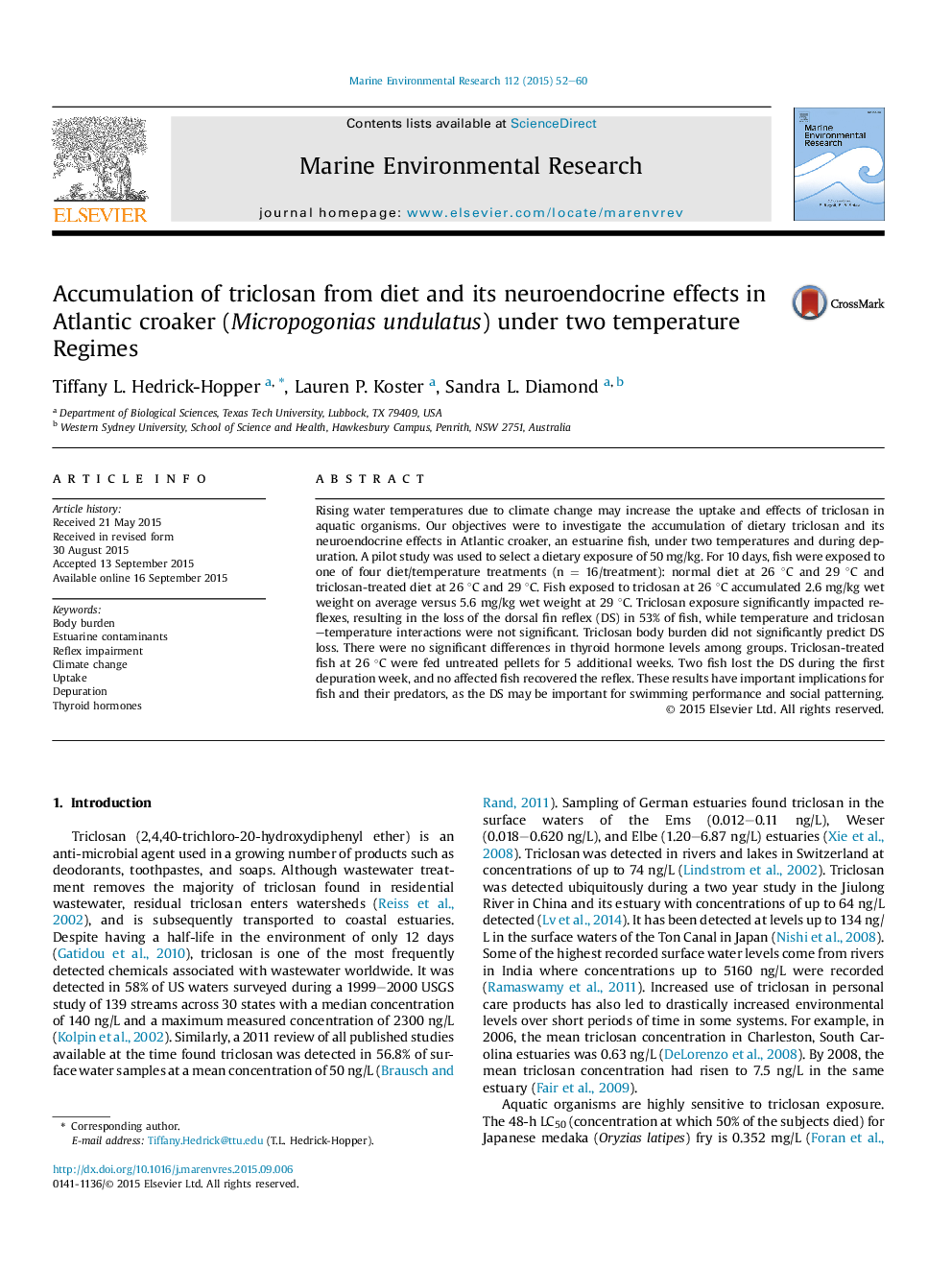| کد مقاله | کد نشریه | سال انتشار | مقاله انگلیسی | نسخه تمام متن |
|---|---|---|---|---|
| 4550638 | 1328232 | 2015 | 9 صفحه PDF | دانلود رایگان |

• We examined dietary exposure to triclosan in Atlantic croaker at 26 °C and 29 °C.
• Fish exposed at higher temperatures accumulated significantly more triclosan.
• Triclosan exposure resulted in the loss of the dorsal fin reflex.
• There were no significant effects of triclosan or temperature on thyroid hormones.
• No fish recovered the lost dorsal fin reflex during a 5 week depuration period.
Rising water temperatures due to climate change may increase the uptake and effects of triclosan in aquatic organisms. Our objectives were to investigate the accumulation of dietary triclosan and its neuroendocrine effects in Atlantic croaker, an estuarine fish, under two temperatures and during depuration. A pilot study was used to select a dietary exposure of 50 mg/kg. For 10 days, fish were exposed to one of four diet/temperature treatments (n = 16/treatment): normal diet at 26 °C and 29 °C and triclosan-treated diet at 26 °C and 29 °C. Fish exposed to triclosan at 26 °C accumulated 2.6 mg/kg wet weight on average versus 5.6 mg/kg wet weight at 29 °C. Triclosan exposure significantly impacted reflexes, resulting in the loss of the dorsal fin reflex (DS) in 53% of fish, while temperature and triclosan–temperature interactions were not significant. Triclosan body burden did not significantly predict DS loss. There were no significant differences in thyroid hormone levels among groups. Triclosan-treated fish at 26 °C were fed untreated pellets for 5 additional weeks. Two fish lost the DS during the first depuration week, and no affected fish recovered the reflex. These results have important implications for fish and their predators, as the DS may be important for swimming performance and social patterning.
Journal: Marine Environmental Research - Volume 112, Part A, December 2015, Pages 52–60